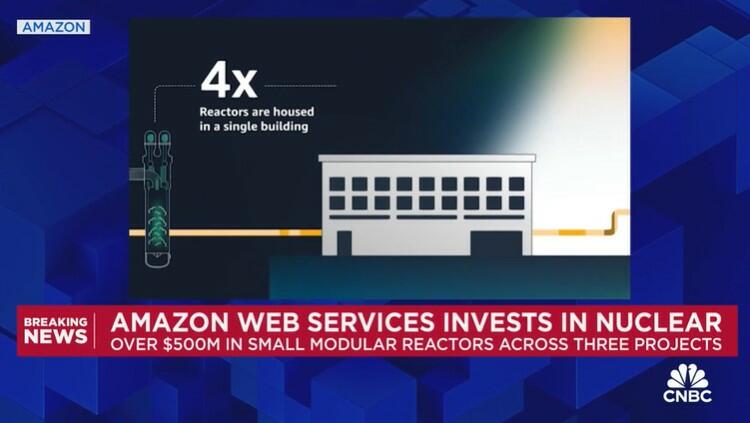It’s starting to feel like every single day the embrace of nuclear to power the future of data centers takes hold tighter. Just hours ago, it was Google inking a deal with Kairos Power for small modular reactors.
Today, it’s Amazon, putting on display why our “next AI trade” will generate obnoxious amounts of alpha in the coming years, as they commit to investing more than $500 million to develop small module reactors, according to CNBC.
Amazon Web Services is launching three projects from Virginia to Washington State. AWS has partnered with Dominion Energy to explore building a small modular reactor (SMR) near the North Anna nuclear station in Virginia. SMRs, which produce no carbon emissions, have smaller footprints and faster construction times than traditional reactors.
CNBC writes that Virginia hosts nearly half of the U.S. data centers, with Northern Virginia’s “Data Center Alley” in Loudoun County handling 70% of the world’s internet traffic daily.
Dominion Energy, meanwhile, supplies 3,500 megawatts to 452 data centers across Virginia, with most in Data Center Alley. Typical data centers require 30 megawatts or more, and Dominion is now receiving requests for 60 to 90 megawatts. It expects demand to grow by 85% in the next 15 years. AWS’s new SMRs are projected to add at least 300 megawatts of power to the region. […]
— Read More: www.zerohedge.com


